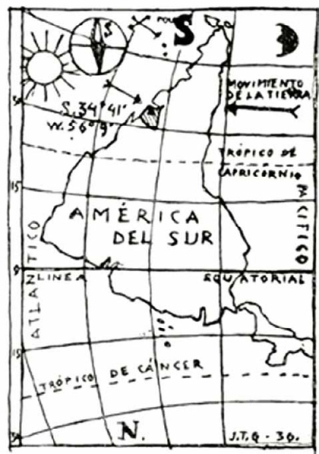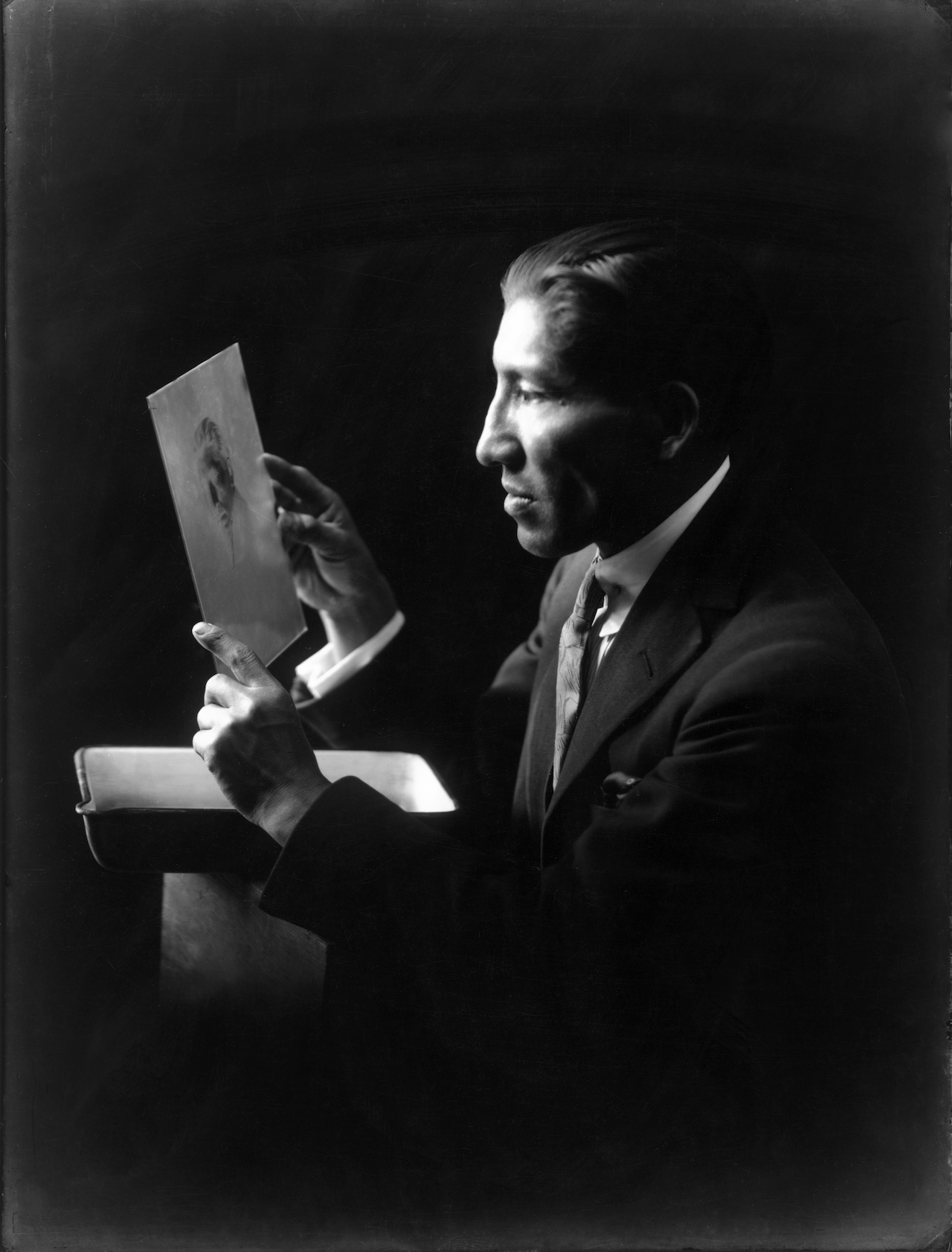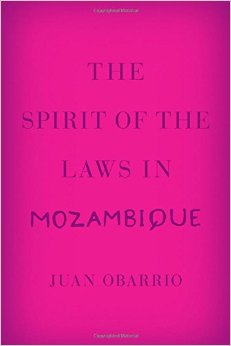 Sarah Walsh will be convening a seminar with Dr Fernanda Peñaloza of the Spanish and Latin American Studies Department on 16-17 July 2015. Mapping Connections: Australia and Latin America will investigate affinities, connections, and tensions in the south-south axis between Australia and Latin America. Participants will explore how Latin America is imagined, created, and approached in the trajectories of Australian scholarship.Source: Mapping Connections | Race and Ethnicity in the Global South
Sarah Walsh will be convening a seminar with Dr Fernanda Peñaloza of the Spanish and Latin American Studies Department on 16-17 July 2015. Mapping Connections: Australia and Latin America will investigate affinities, connections, and tensions in the south-south axis between Australia and Latin America. Participants will explore how Latin America is imagined, created, and approached in the trajectories of Australian scholarship.Source: Mapping Connections | Race and Ethnicity in the Global South
Asides
Eduardo Galeano’s Words Walk the Streets of a Continent
Eduardo Galeano’s Words Walk the Streets of a Continent. A tribute to one of the South’s most powerful voices who recently passed away at 74 years of age.
Rethinking Knowledge Production and Circulation in Comparative and International Education: Southern Theory, Postcolonial Perspectives, and Alternative Epistemologies
The Southern African indigenous concept of Ubuntu is the theme of the 59th CIES annual meeting in Washington, DC. Featuring this notion that reflects the region’s particular intellectual histories and anticolonial and postcolonial struggles, the conference organizers ask us not only to consider ways to revitalize humanistic potentials of education in the current neoliberal time but more importantly to take seriously the intellectual work and theoretical insights generated in peripheral regions around decolonial struggles over knowledge.
JSTOR: Comparative Education Review, Vol. 59, No. 1 (February 2015), pp. v-viii.
Decolonizing The Mind summer school
The set up of the Summer School in Amsterdam consists of lead presentations, student presentations and debates. We want to create an interactive environment that combines expert knowledge and experience of lead presenters with the expectations, experience and knowledge of the participants.
The Trailblazing Peruvian Photographer Who Captured a Vanishing World
A Brazilian perspective on Aboriginal art in Australia
 GOLDSTEIN, Ilana Seltzer. “Visible art, invisible artists? The incorporation of Aboriginal objects and knowledge in Australian museums in in: Vibrant – Virtual Brazilian Anthropology (link).
GOLDSTEIN, Ilana Seltzer. “Visible art, invisible artists? The incorporation of Aboriginal objects and knowledge in Australian museums in in: Vibrant – Virtual Brazilian Anthropology (link).
Abstract: The creative power and the economic valorization of Indigenous Australian arts tend to surprise outsiders who come into contact with it. Since the 1970s Australia has seen the development of a system connecting artist cooperatives, support policies and commercial galleries. This article focuses on one particular aspect of this system: the gradual incorporation of Aboriginal objects and knowledge by the country’s museums. Based on the available bibliography and my own fieldwork in 2010, I present some concrete examples and discuss the paradox of the omnipresence of Aboriginal art in Australian public space. After all this is a country that as late as the nineteenth century allowed any Aborigine close to a white residence to be shot, and which until the 1970s removed Indigenous children from their families for them to be raised by nuns or adopted by white people. Even today the same public enchanted by the indigenous paintings held in the art galleries of Sydney or Melbourne has little actual contact with people of Indigenous descent.
Racial Conceptions in the Global South by Warwick Anderson
What happens to twentieth-century race science when we relocate it to the Global South? North Atlantic debates have dominated the conceptual history of race. Yet there is suggestive evidence of a “southern” or antipodean racial distinctiveness. We can find across the Southern Hemisphere greater interest in racial plasticity, environmental adaptation, mixing or miscegenation, and blurring of racial boundaries; endorsement of biological absorption of indigenous populations; and consent to the formation of new or blended races. Once we recognize the Global South as a site of knowledge making, and not just data extraction, the picture of race science in the twentieth century changes. Once situated, or displaced, the conventional North Atlantic history of race science in the twentieth century comes to seem exceptional—and no longer normative.
Design Latitudes
Design Studies (Department of Art & Design) at the University of Alberta (Canada) calls for proposals to an exhibition mapping the innovations, influences and future directions of design studies in the north. Many of the specifications reflect a southern perspective, such as ‘Investigate the role and responsibility of designers with respect to northern ecologies’. The key difference seems the history of colonisation, which is much more extensive in the south and is associated with greater self-doubt.
Imaginar América Latina – conference on visual arts

IV Encuentro Internacional de Estudios Visuales Latinoamericanos
Por su parte, los estudios visuales latinoamericanos requieren de un acercamiento al contexto de nuestras regiones y realidades nacionales teniendo en cuenta sus especificidades sociales, políticas y geo-estéticas. Así, los estudios visuales latinoamericanos se insertan en un escenario global, con el objetivo de impulsar los análisis críticos frente a una lectura unívoca y no diversa de nuestras realidades. Además, se alejan de los tópicos y mitos que han convertido la región en “exótica realidad”.
El IV Encuentro Internacional de Estudios Visuales Latinoamericanos: Imaginar América Latina, tiene la finalidad de reunir investigadores, especialistas y estudiantes internacionales que han hecho suyos los temas relativos al estudio de la imagen y la cultura visual latinoamericana. En esta ocasión, el Encuentro centrará su atención en la discusión de las diferentes líneas temáticas que, en conjunto, conforman el panorama actual de los estudios visuales latinoamericanos. El objetivo será debatir sobre el pasado y el presente de la actual cultura visual latinoamericana, destacando y caracterizando sus señas de identidad, los referentes históricos que han llevado a conformar un campo propio de investigación, los lazos que la unen a procesos sociales y culturales que se han dado a lo largo de su historia y las crisis de identidad que ha atravesado en su desarrollo. Esto puede ser abordado tanto a través de estudios de caso, como de propuestas teóricas o metodológicas más generales.
El IV Encuentro Internacional de Estudios Visuales Latinoamericanos, organizado por la Red de Estudios Visuales Latinoamericanos (ReVLaT) se desarrollará en varias sesiones organizadas en mesas, de acuerdo a las coincidencias temáticas y/o metodológicas de las ponencias seleccionadas. Tendrá lugar en Querétaro (México), en el mes de junio de 2015.
Las propuestas deberán incluir los siguientes elementos: título, breve biografía académica del autor (máx. 500 palabras), datos de contacto, resumen (máx. 600 palabras), cinco palabras clave y el texto completo de la ponencia (máx. 5.000 palabras, unas 8 páginas). Deberán ser enviadas hasta el 5 de febrero de 2015 a: redevlat@gmail.com
http://www.revlat.com/noticias
The Spirit of the Laws in Mozambique: Juan Obarrio
Mozambique has been hailed as a success story by the international community, which has watched it evolve through a series of violent political upheavals: from colonialism, through socialism, to its current democracy. As Juan Obarrio shows, however, this view neglects a crucial element in Mozambique’s transition to the rule of law: the reestablishment of traditional chieftainship and customs entangled within a history of colonial violence and civil war. Drawing on extensive historical records and ethnographic fieldwork, he examines the role of customary law in Mozambique to ask a larger question: what is the place of law in the neoliberal era, in which the juridical and the economic are deeply intertwined in an ongoing state of structural adjustment?


